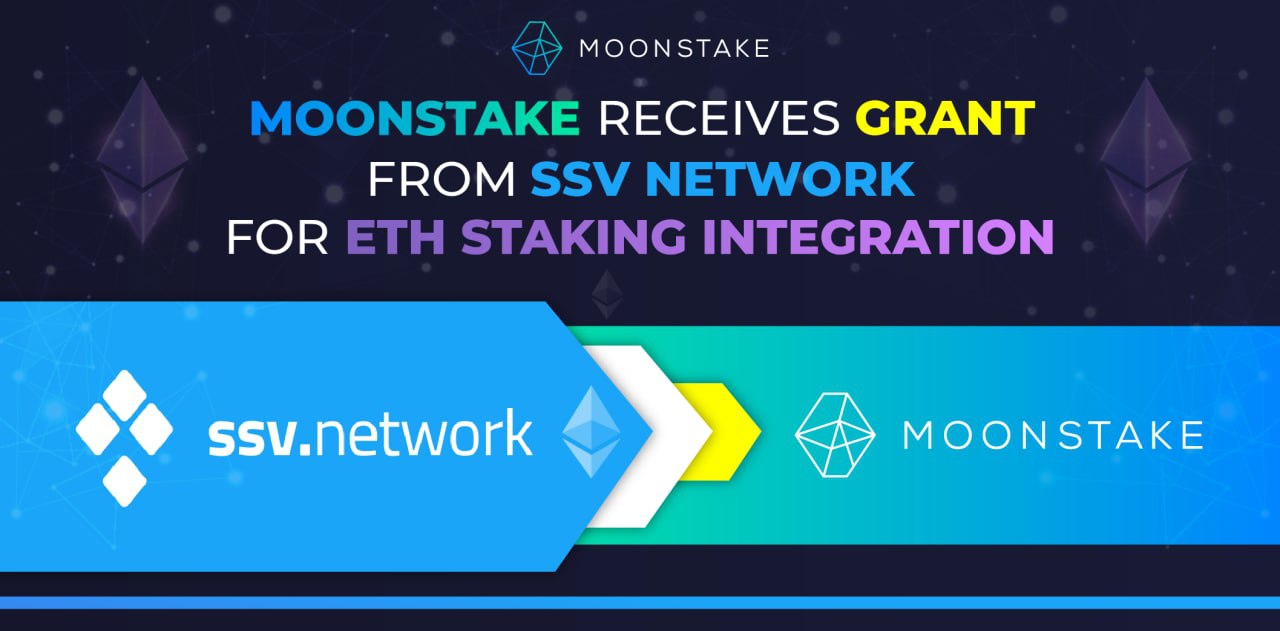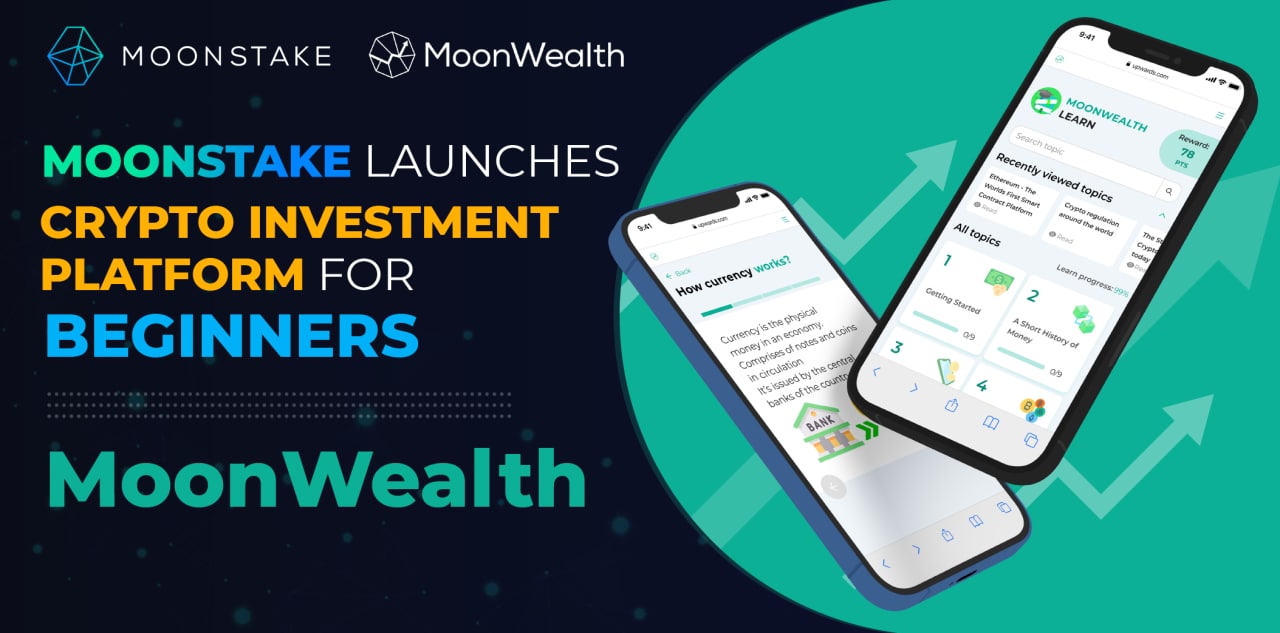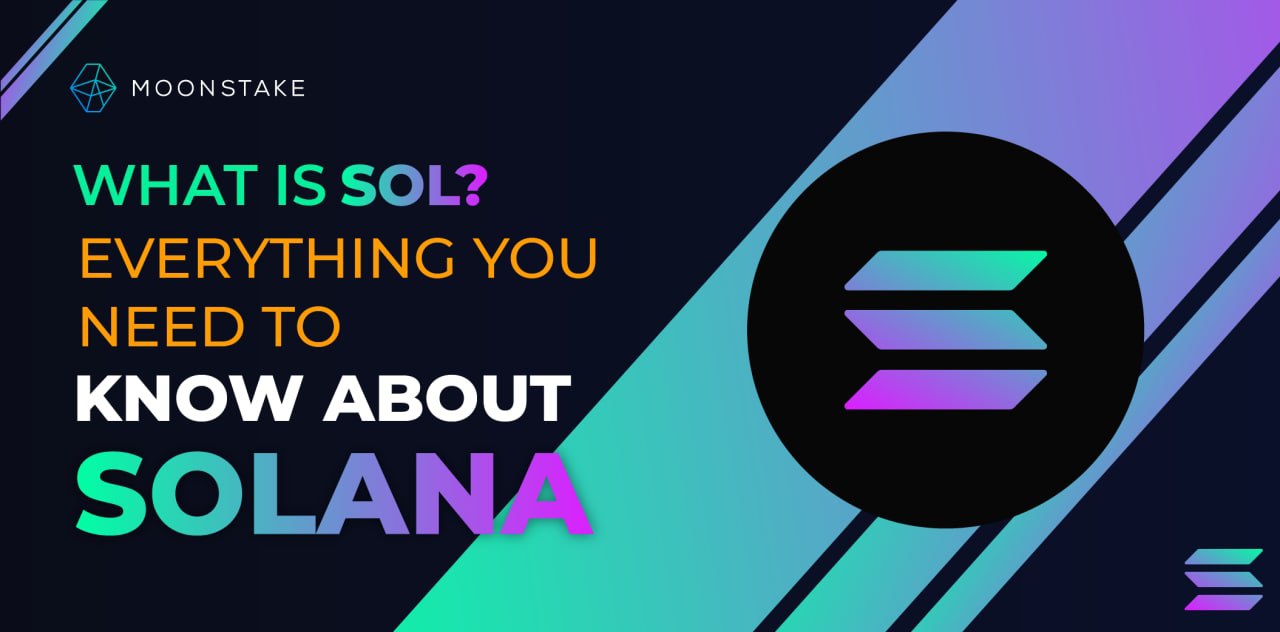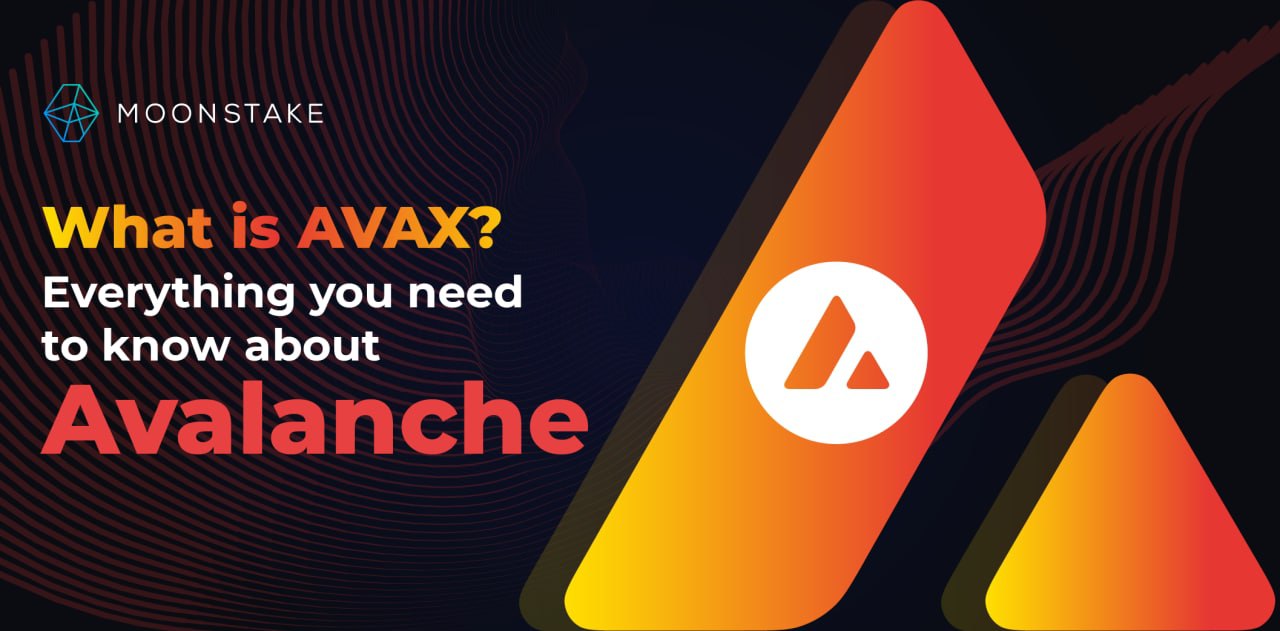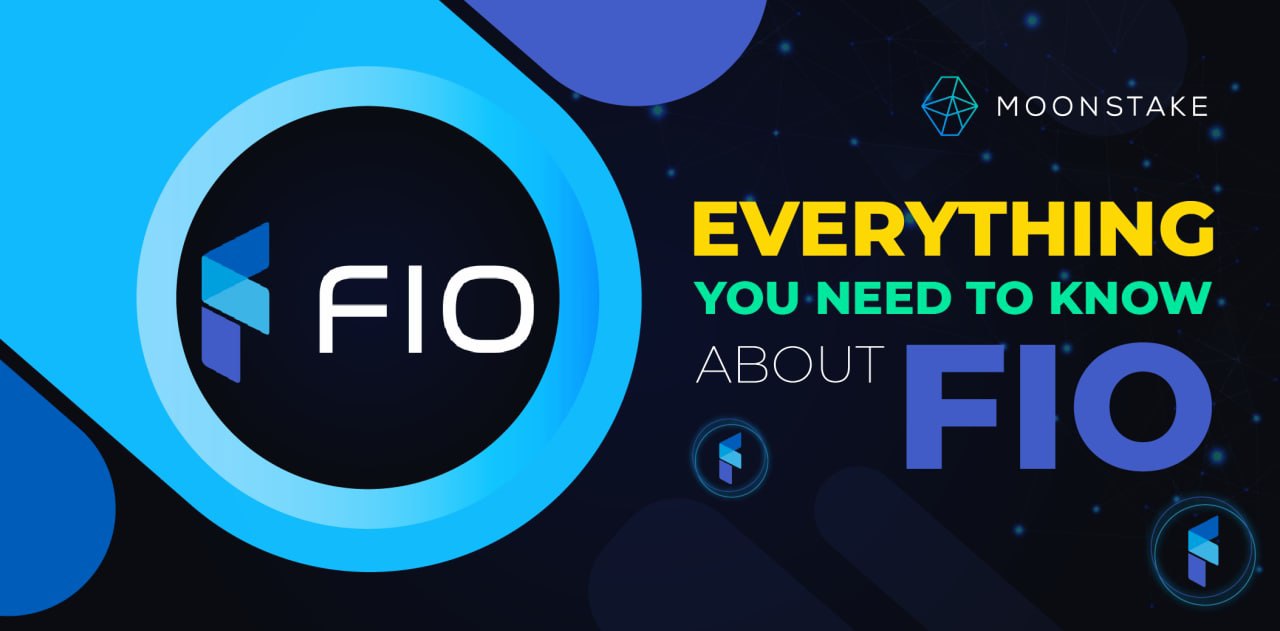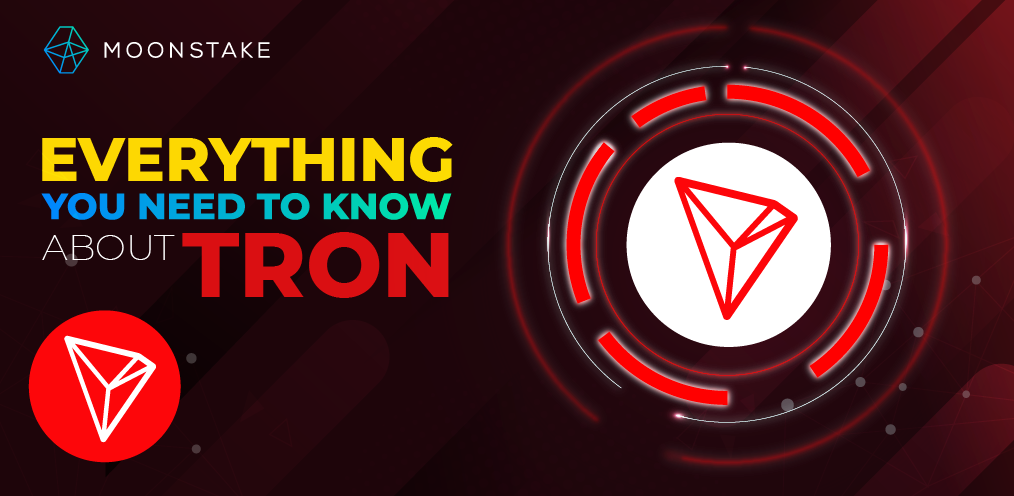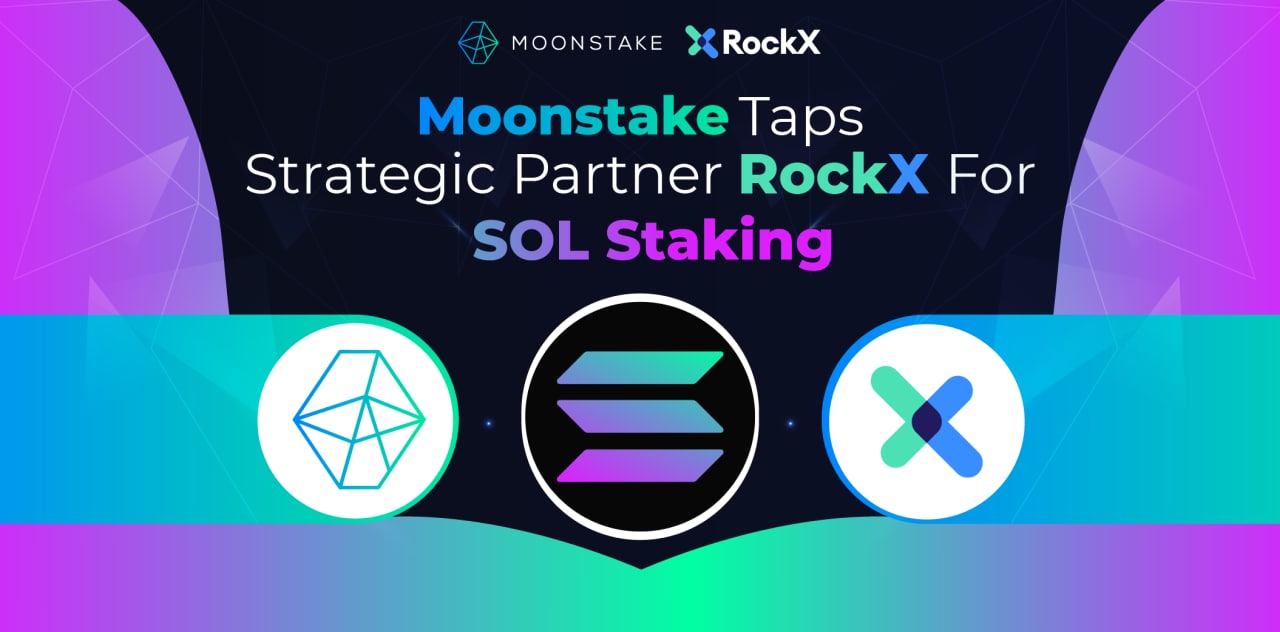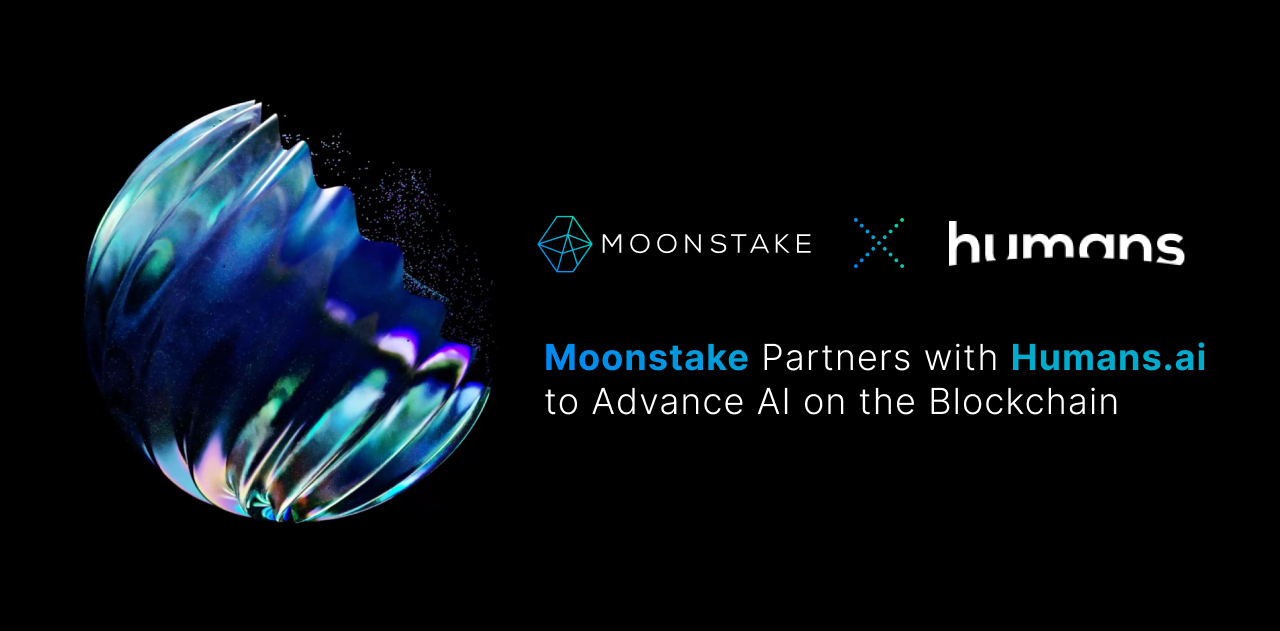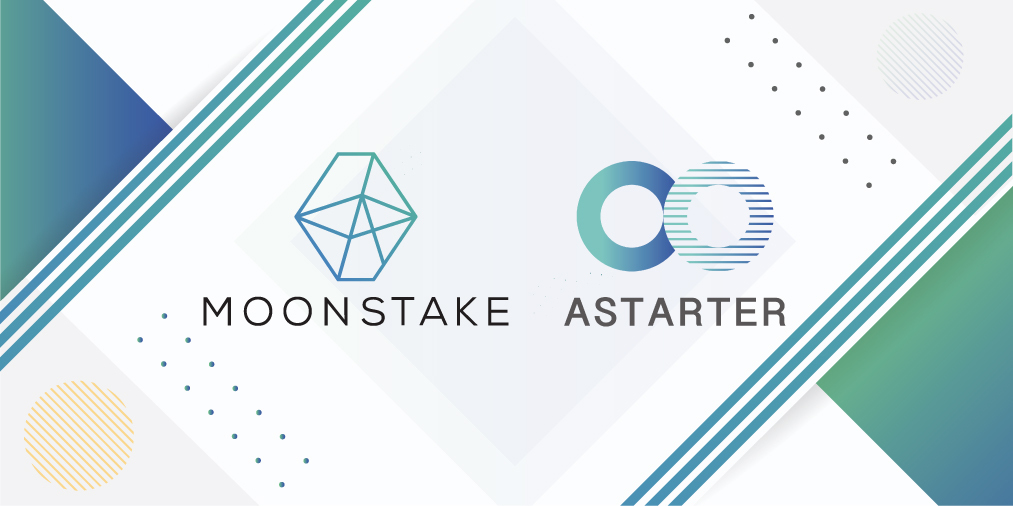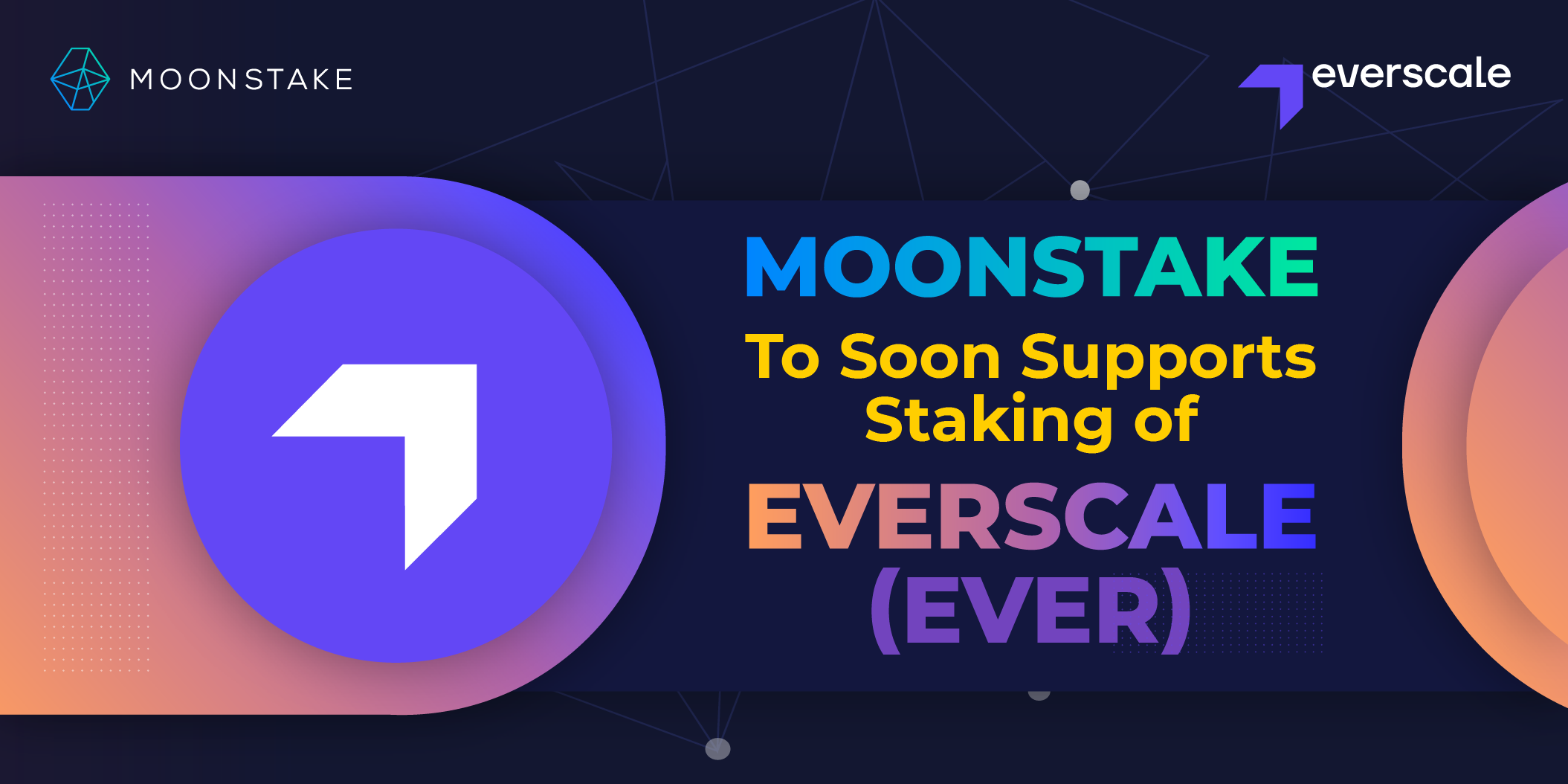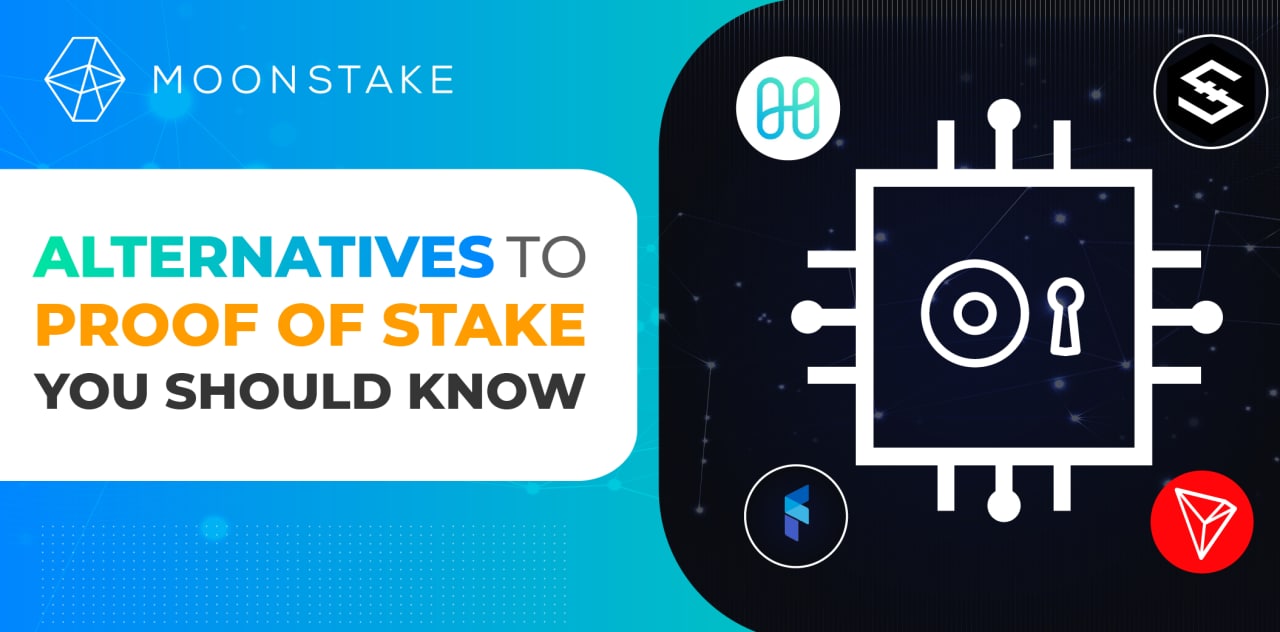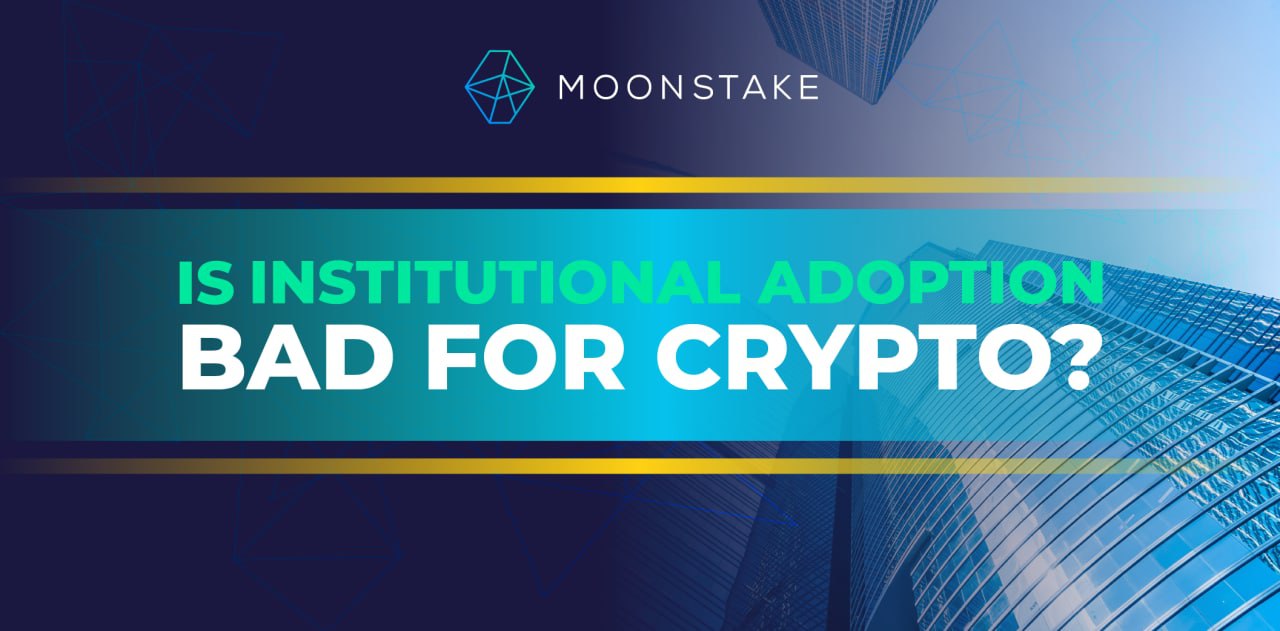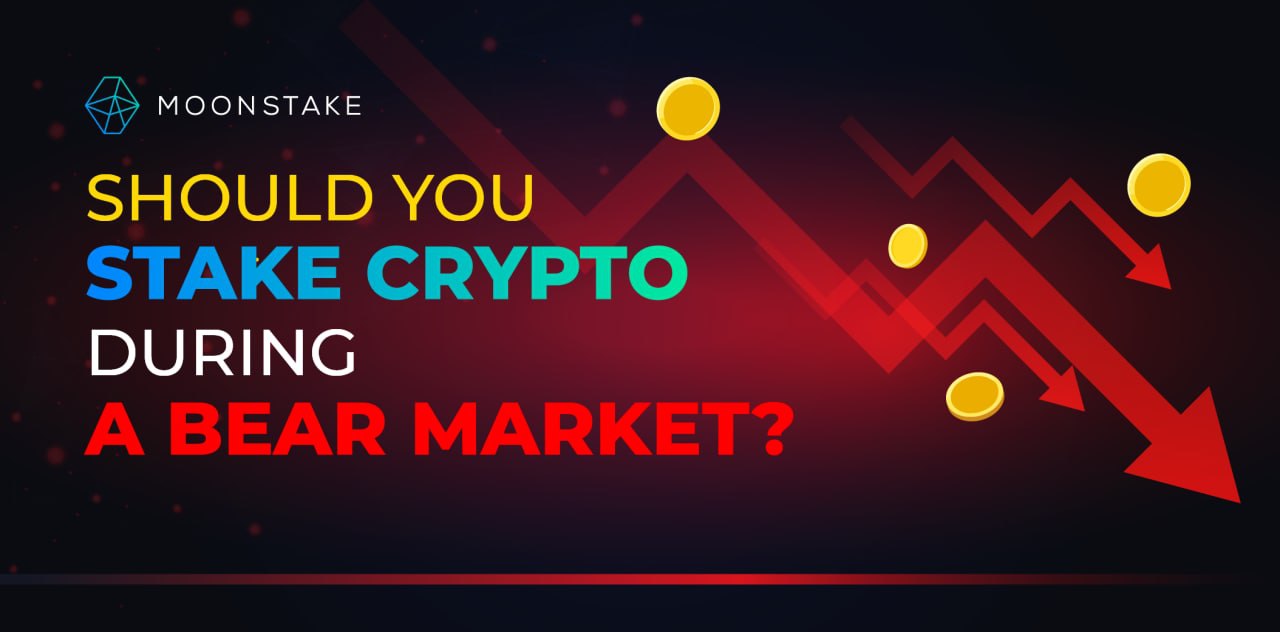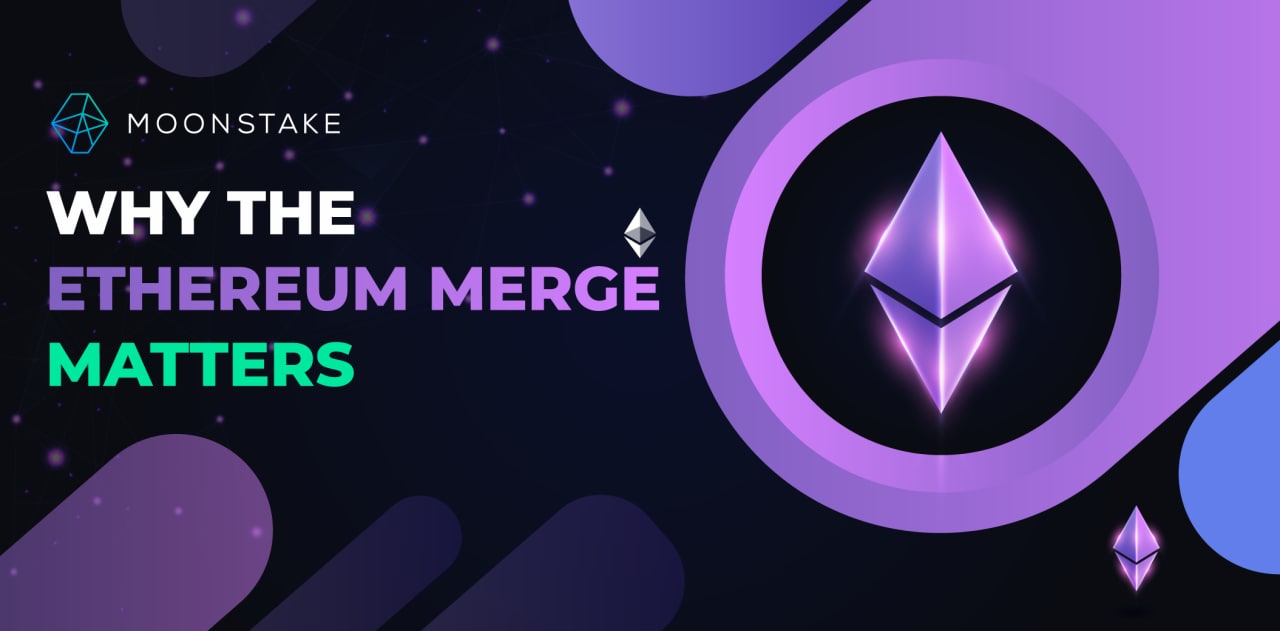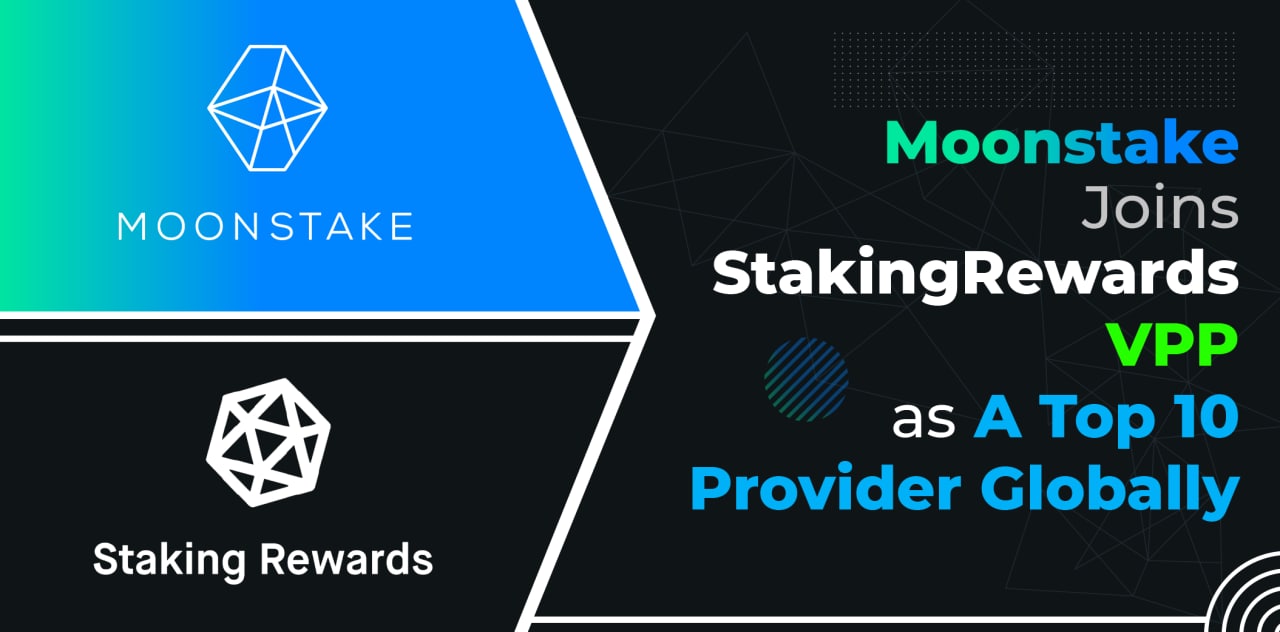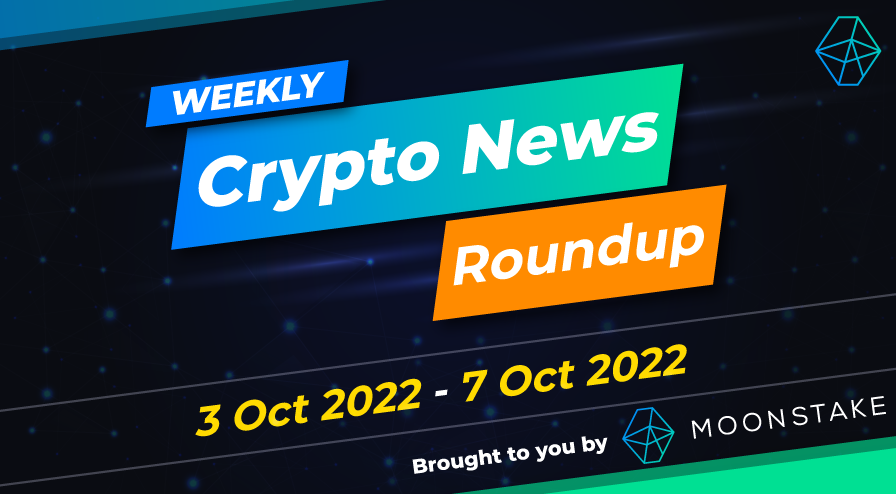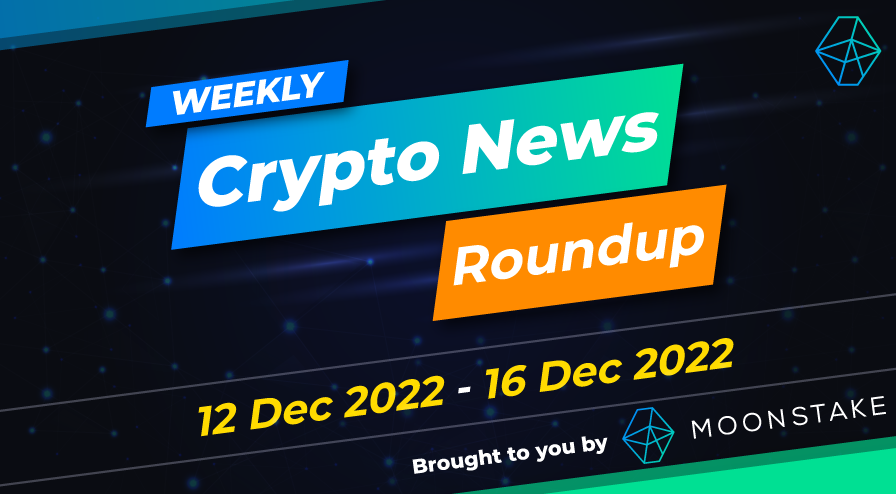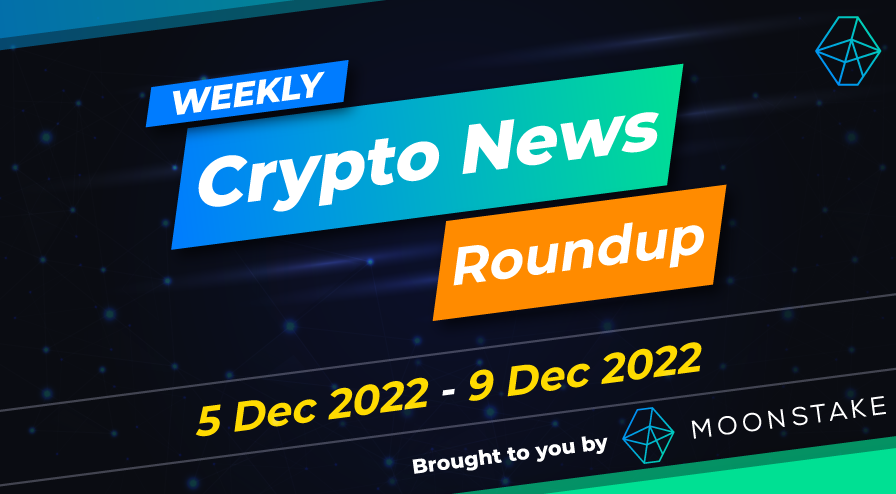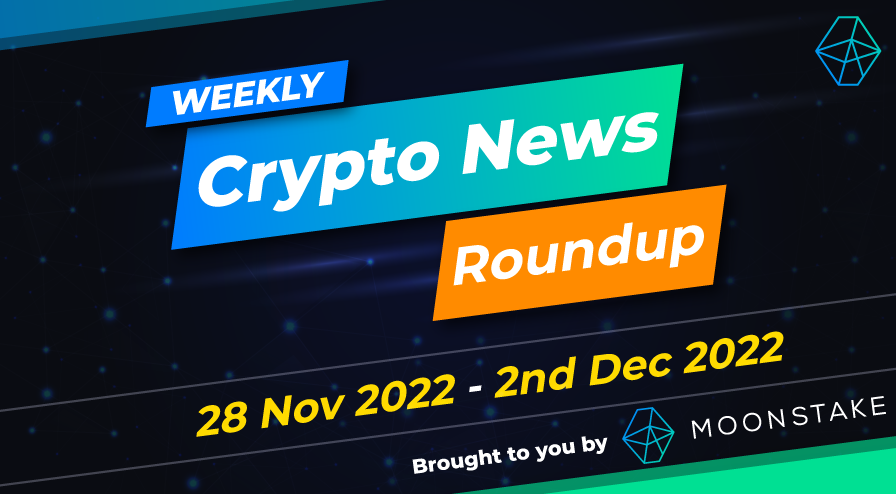Today, Moonstake is pleased to announce we have secured a staking pool integration grant from the DAO-governed SSV Network to integrate ETH staking on the Moonstake Wallet. Moonstake will be integrating SSV’s unique architecture to bolster Ethereum decentralization and ensure Moonstake’s validator infrastructure is as robust as possible. This will enable a seamless decentralized ETH staking experience for global users, and Moonstake and SSV will also work together to promote our ecosystems through this collaboration.
The ssv.network Grants Program is a community-led initiative to fund development teams building decentralized staking applications and services with the intent of promoting and accelerating development and innovation by developers building on top of the network. Proposals to the grant are evaluated on the technical design of the project, the overall quality of the team and its community, and more. Moonstake is thrilled to join the SSV Network Grants Program as a verified top 10 staking provider worldwide and soon support ETH staking.
As of 15 September 2022, Ethereum has officially become a Proof of Stake blockchain and the demand for ETH staking is higher than ever. Currently, ETH holders must have 32 ETH and build their own validator infrastructure in order to stake, which requires a high level of technical expertise and maintain a costly infrastructure. Alternatively, non-tech users could stake their ETH by relying on a custodian staking-provider service or centralized exchange. Moonstake and SSV aim to address this issue by providing users with a non-custodial ETH staking solution via Moonstake Wallet using SSV’s innovative technological infrastructure. We are proud to uphold our commitment of providing the best staking experience for users worldwide, as well as to finally take the next big step in our promised support plan for the Ethereum Merge and PoS ETH.
Mitsuru Tezuka, Founder at Moonstake, says:
“Moonstake is happy to have received this grant from the SSV Network and partner up for ETH staking integration. The demand for ETH staking is higher than ever, yet users can only rely on custodial solutions at the moment which takes away from the decentralized experience of crypto and could potentially lead to many security risks. As a verified top 10 staking provider worldwide, we hope to be able to bring even more value to crypto users worldwide by providing a seamless ETH staking experience using SSV’s robust technology. We look forward to growing the Moonstake, SSV, and Ethereum staking ecosystems together, as well as promoting the staking industry as a whole through this great partnership.”
Moonstake started the staking business in 2020 with the aim to create the largest staking network in Asia. Since then, we have developed the most user-friendly Web Wallet and Mobile Wallet (iOS / Android) with support for over 2000 cryptocurrencies. After a full-scale operation launched in August 2020, Moonstake’s total staking assets have grown rapidly to reach $1 Billion, allowing Moonstake to become one of the top 10 staking providers globally. Currently, Moonstake supports 17 leading PoS assets including Cosmos, IRISnet, Ontology, Harmony, Tezos, Cardano, Qtum, Polkadot, Quras, Centrality, Orbs (Ethereum and Polygon), IOST, TRON, Shiden, FIO, Everscale, and Oasis. Proof of Stake ETH will be the 18th staking coin supported by Moonstake once technical integration is completed.
SSV is a fully decentralized open Ethereum staking infrastructure. It provides an open architecture for anyone who wants to run an Ethereum validator; from individual users to staking pools and large institutional staking services. The SSV Network aims to address the main concerns faced with Ethereum staking which include: custody and management of private keys, liveliness and redundancy, single point of failure, security and encryption, as well as decentralization and network governance.
Follow us on Twitter and Telegram for the latest updates on Moonstake news!
About Moonstake
Moonstake is the world’s leading staking service provider that develops and operates decentralized wallet services for businesses and individuals.
Since its launch in April 2020, Moonstake has partnered with 27 leading platform providers, including Cardano’s constituent Emurgo, developer of the Polkadot-connected blockchain Astar Network Stake Technologies, and the TRON Network with over 50 million users. In May 2021, Moonstake further enhanced its corporate credibility by becoming a wholly owned subsidiary of OIO Holdings Limited, a company listed on the Singapore Stock Exchange.
Using blockchain technology, Moonstake aims to progress toward a world where anyone can easily make use of highly secure and reliable digital asset management tools.
About Moonstake’s staking business
For the staking industry, which has grown into a 630-billion dollar market as of September 2021, Moonstake provides a decentralized staking service that does not require user deposits, and supports nodes around the world in addition to its own validator nodes. Moonstake currently supports the staking of 17 blockchains. With a total staking assets of 1.8 billion USD and a global user base, the company ranked third out of more than 10,000 providers worldwide in June of the same year.
About SSV Network
Secret Shared Validators (SSV) is the first secure and robust way to split an Ethereum validator key between non-trusting nodes. The nodes do not need to trust each other to carry out their validator duties, and a certain number can be offline without affecting validator performance. The result is a reliable, decentralized, secure infrastructure for Ethereum staking.
SSV Network is the decentralized staking infrastructure running the SSV protocol that enables the distributed operation of an Ethereum validator. It is also a reusable and scalable ETH staking infrastructure developers can use to build new staking apps and deploy them quickly and easily.

